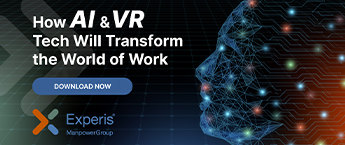
 AI and Workforce Trends31 Jul 2023
AI and Workforce Trends31 Jul 2023The landscape of artificial intelligence (AI) and automation is undergoing a transformative shift, moving from isolated task-specific applications and physical “warehouse robots” to the development of interconnected autonomous agents called agent swarms.
In a recent article in CIO Magazine, contributor Shail Khiyara says that these AI-powered agent swarms are inspired by the remarkable collective behaviors of nature’s most efficient creatures and are poised to revolutionize our approach to complex problem-solving.
The rapid progress in large language models and generative AI technology has been a driving force behind the surge in AI agent capabilities. Today’s AI swarm agents are capable of making decisions and acting independently, therefore changing the game when it comes to integration of AI with conventional IT infrastructures. AI swarm agents can interact with a wide array of systems and services, and because they can be deployed by the millions and even billions to tackle a given challenge collectively, they can perform tasks traditionally done by humans on a much larger scale.
In an era of persisting labor shortages, it’s critical that staffing organizations learn to use technologies such as AI swarm agents to recruit and develop top talent faster and more effectively than we have in the past. These five areas represent the most immediate applications.
The process of implementing AI swarm agents starts with a business question that is specific and actionable. By identifying specific use cases first, you establish clear objectives for what you want the solution to achieve. This clarity is crucial for setting measurable goals and expected outcomes, as well as fully understanding the impact on workforce efficiency.
Defining use cases upfront, with input from stakeholders across the organization, can save time and resources. It helps prevent the implementation of unnecessary or overly generic AI solutions that may not address your unique challenges or might require significant customization later. The identification process can also help you assess the risks associated with implementing AI swarm agents, including data privacy concerns, potential biases in AI algorithms, and the impact on workforce morale. This proactive approach allows for the development of mitigation strategies and ensures that the AI swarm agent implementation adheres to ethical guidelines and regulatory requirements.
AI swarm agents that act independently on our behalf are setting the stage for a significant leap in operational efficiency and user experience. Their ability to exponentially enhance human work efforts presents an exciting opportunity for forward-thinking organizations to find new and innovative solutions to the most vexing human capital challenges.